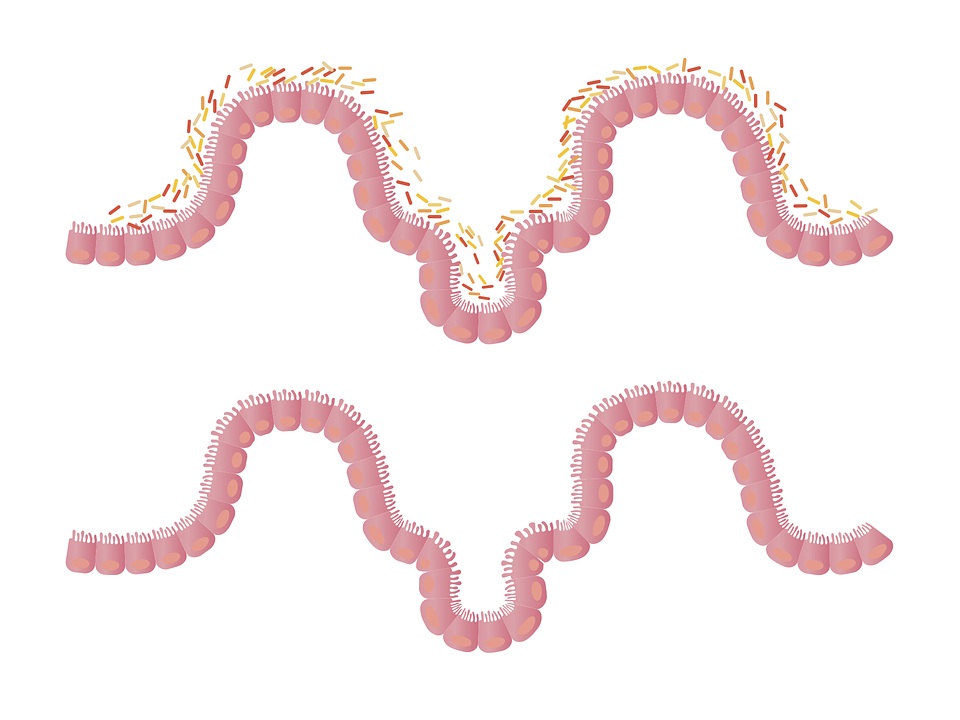Do you often have abdominal pain, constipation or diarrhea? It could be irritable bowel syndrome. Irritable bowel syndrome (IBS) is a dynamic disorder of the whole digestive tract.

Several characteristics of irritable bowel syndrome:
- Symptoms vary, but often include lower abdominal pain, flatulence, constipation or diarrhea.
- Can be triggered by many physical and emotional factors.
- Diagnosis is based on symptoms, but tests should be carried out to exclude other diseases.
- A regular diet is the best treatment, and medication usually relieves symptoms.
Irritable bowel syndrome (IBS) is usually considered as a functional disorder, which impairs the normal activities of the body, such as intestinal peristalsis, intestinal nerve sensitivity.
Although normal function is impaired, structural abnormalities are not seen on endoscopy, X-ray, or blood tests.
Therefore, the diagnosis of irritable bowel syndrome can only be determined by specific symptoms, or a very limited number of tests.
Cause
The etiology of irritable bowel syndrome is not clear. In many patients with irritable bowel syndrome, the gut is particularly sensitive to stimuli. Patients may not be uncomfortable with normal intestinal gas, intestinal contraction.
Emotional factors (such as stress, anxiety, disappointment, and fear), diet, drugs, hormones, or small stimuli can trigger or aggravate irritable bowel syndrome. For some people, a high-energy or high-fat diet may be an incentive.
For others, wheat, dairy products, coffee, tea or citrus fruits may exacerbate the symptoms. However, these foods contain a variety of ingredients, so it is difficult to determine the specific incentives.
It has been found that eating too fast or fasting for too long after meals can cause irritable bowel syndrome attacks, and the relationship is not consistent. Not every incentive stimulus after symptoms, and symptoms often do not appear obvious incentives. How these triggers cause irritable bowel syndrome remains unclear.
Symptoms
Irritable bowel syndrome often occurs at the age of 10 and 20 years old or so, causing irregular paroxysmal symptoms, after the age of relatively rare, but also a number of many. The illness often appears suddenly when people wake up, but irritable bowel syndrome does not cause people to wake up because of discomfort.
Clinical manifestations include abdominal pain associated with defecation or relief after defecation, changes in stool frequency or composition (constipation or diarrhea), abdominal distention, mucus defecation, or inescapable defecation.
The pain may be a persistent dull pain or colic, usually located in the lower abdomen.
Patients may also have abdominal distention, flatulence, nausea, headache, fatigue, depression, anxiety or inattention performance.
Overall, the characteristics and location of pain, incentives, and defecation patterns over time are relatively consistent. The symptoms can be greatly aggravated or alleviated, and vary greatly with time.
Diagnosis
Most patients with irritable bowel syndrome appear to be in good health. The physical examination usually showed no abnormalities other than tenderness in the large intestine.
Some tests, such as blood tests, stool tests, and sigmoidoscopy, are performed to differentiate irritable bowel syndrome from Crohn’s disease, ulcerative colitis, collagenous colitis, and lymphocytic colitis. And other diseases that cause abdominal pain and habitual changes in defecation.
Although the stool may be a thin water sample, the results of the fecal examination are usually normal. Sigmoidoscopy can cause abdominal cramps and abdominal pain, but otherwise, the results are normal. In some cases, patients with unusual symptoms of IBS, such as fever, bloody stool, weight loss, and vomiting, may need other tests, such as abdominal ultrasound, intestinal X-ray, or colonoscopy.
Other digestive diseases, such as appendicitis, gallbladder disease, ulcers, and tumors, can cause irritable bowel syndrome, especially in people over the age of 40. Thus, if the patient has significant changes in symptoms or rare symptoms of irritable bowel syndrome, further examination is required.
Treatment
The treatment of irritable bowel syndrome varies from person to person.
Have the food factor that causes this disease clearly, or psychology is nervous, mood obstacle person, if possible, should avoid these factors. For most patients, especially those with constipation, regular exercise helps to restore and maintain normal gastrointestinal function.
In general, a normal diet is the best choice. Many people do feel better eating less than overeating (for example, eating five to six times a day rather than three times a day).
Those with bloating and flatulence should avoid legumes, cabbage and other indigestible foods. Large quantities of foods, medicines and chewing gum with artificial sweeteners such as sorbitol should be avoided. Eat only small amounts of fructose (fruit, berries and some common ingredients in plants).
Low-fat diet has some effect on improving the symptoms of patients, especially for patients with gastric emptying too fast or too slow.
People with both irritable bowel syndrome and lactase deficiency should avoid dairy products, even if some lactase deficiency patients may be able to tolerate small amounts of milk products per day.
Some irritable bowel syndrome patients, especially those whose main symptom is constipation, can improve their symptoms by eating more fiber.